The Lavin Agency Speakers Bureau
A speakers bureau that represents the best original thinkers,
writers, and doers for speaking engagements.
A speakers bureau that represents the best original thinkers,
writers, and doers for speaking engagements.
Telling our own stories has the power to combat burnout and bring us together in community.
Our stories don’t just give us the power to communicate—they give us the power to heal. New York Times bestselling author and Stanford professor LAUREL BRAITMAN is a driving force in bridging the gap between storytelling and the medical world. She works with doctors and medical students—who, like many other frontline workers, are facing record levels of burnout—and proves that the simple act of telling our own stories can help build community, improve mental health, and equip us with the communication skills we need to make a real difference for those around us. “No matter what profession we choose,” Laurel says, “we can make meaning, find beauty in the hard stuff, and create.”
“[Laurel Braitman] has the rare gift of being able to combine ideas, research and personal experience into a compelling narrative.”
— Amitav Ghosh, award-winning author of Sea of Poppies
Laurel Braitman is the Director of Writing and Storytelling at the Stanford School of Medicine, as well as the New York Times bestselling author of Animal Madness and her memoir What Looks Like Bravery. In the Medicine and the Muse program at Stanford, she works with medical students and professionals to reintroduce the power of storytelling to the healthcare field. She’s seen firsthand how telling your own story—“flying your flag”—can relieve stress, avert burnout, strengthen resilience, and empower you to build connections based on authenticity and vulnerability. In her workshops, she teaches doctors and frontline workers writing skills that they use to make meaning and find beauty even in the toughest moments of their careers. The practical skills and lessons she teaches enable us to develop better mental health, heal ourselves and one another, and build communities that rally together with compassion and authenticity.
Laurel’s memoir What Looks Like Bravery is a powerful look at how unexamined grief can persist over decades. Through the lens of her own life, and a childhood spent worrying about her father with cancer, Laurel sensitively and honestly explores how confronting our grief can help us live the life we really want, and how the pain of loss can transform us into the people we want to become. “Evocative and clear-eyed . . . Just as Eat Pray Love and Wild inspired millions, this book will send countless readers on a different—yet no less life-changing or profound—pilgrimage, as it did for me.” (Samin Nosrat, New York Times bestselling author)
Her previous book, the New York Times bestseller Animal Madness, is a “lovely, big-hearted book” (The New York Times) investigating mental illness in the animal kingdom—from anxious dogs to depressed bears. Susan Orlean, bestselling author of The Orchid Thief, calls it “a marvelous, smart, eloquent book—as much about human emotion as it is about animals and their inner lives.”
Laurel holds a PhD in Science, Technology and Society from MIT, and is a Senior TED Fellow. She’s the founder of Writing Medicine, a global community of writing healthcare professionals. Her work has been featured on the BBC, NPR, Good Morning America, and Al Jazeera. Her writing has appeared in The Guardian, on Radiolab, in The Wall Street Journal, WIRED, and National Geographic, among others. She’s worked in Alaska studying grizzly bears, made coffee for the Hell’s Angels, taught backpacking, and volunteered with grieving kids. Laurel splits her time between the remote Alaskan wilderness and her family’s citrus and avocado ranch in Southern California.
Laurel was among the highest praised speakers at Learn Serve Lead, both in evaluations and in conversation. Laurel spoke to the presumed culture of invulnerability among medical professionals, which resonated with our attendees of medical students, physicians and academic medicine faculty. Laurel was personal, resourceful and a lot of fun! She shared her own experience with invulnerability, which inspired attendees to consider their own. I hope to have the opportunity to work with Laurel again!
Association of American Medical CollegesLaurel’s discussion had us pause and reflect on the underlying emotional, intellectual, and generally human (let’s say animal) issues we face in our lives; the engagement was deep and even moving, and—most important—lasting.
Vintus Wines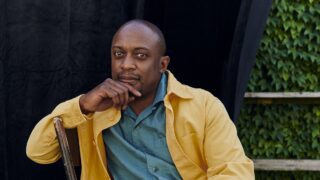
World-Renowned Artist Winner of the US Department of State Medal of Arts Guggenheim Fellow
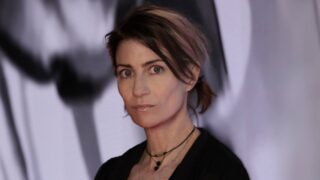
AR Artist Filmmaker Founder and Artistic Director of 4th Wall
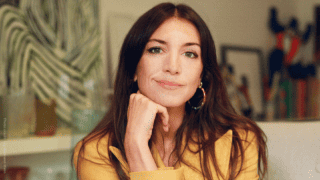
Instant New York Times Bestselling Author of The Story of Art Without Men 2021 Forbes 30 under 30 Europe Guardian Columnist Art Historian and Curator
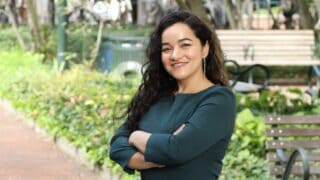
Associate Professor of Business Economics and Public Policy at Wharton 2024 "Top 40 Under 40" Business Professor Author, Femonomics (Forthcoming)
Prof. of Social Psychology & Organizational Behavior at Stanford Director of the Polarization and Social Change Lab
Performance psychologist Head of the MLB Players Association Mental Health Division Former Director of Mental Conditioning for the New York Giants Author of Life as Sport

Instant New York Times Bestselling Author of The Story of Art Without Men 2021 Forbes 30 under 30 Europe Guardian Columnist Art Historian and Curator

Author of Indivisible: How to Forge Our Differences into a Stronger Future Founder and CEO of WatchHerWork
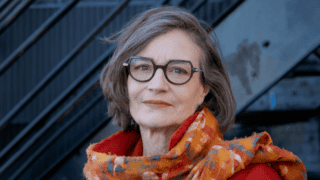
Anti-Ageism Activist Author of This Chair Rocks: A Manifesto Against Ageism Co-Founder of the Old School Hub

Author of Grit, the #1 New York Times Bestseller | Pioneering Researcher on Grit, Perseverance, and the Science of Success

2024 Nobel Prize Winner | 3rd Most Cited Economist in the World | MIT Institute Professor | Bestselling Co-Author of Why Nations Fail and Power and Progress

Pulitzer Prize-Winning Creator of The 1619 Project | Executive Producer of the Emmy Award-Winning 1619 Project Hulu Docuseries | MacArthur Genius
Nike's Former Chief Marketing Officer | Author of Emotion by Design
CEO of The Atlantic | Former Editor-in-Chief of WIRED


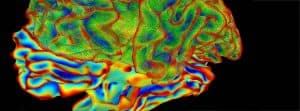
Stanford professor Laurel Braitman spent years studying animals as an anthropologist and historian, but it was her own dog Oliver that taught her something new about animal behavior. Oliver suffered debilitating separation anxiety, was prone to aggression, and may even have attempted suicide. Through caring for him, Laurel learned that animals both suffer and heal like we do: with love, medicine, therapy, and understanding.
Drawing on her bestselling book Animal Madness, Laurel teaches us the lessons she learned from her trips around the world and into the minds of our animal companions, from depressed dogs to anxious elephants. She shows how we’re not so different from them after all—playing, spending time in nature, and learning new skills are deeply important for humans and animals alike. This talk is a call for a deeper sense of empathy—one that will have untold rewards for all life on earth.